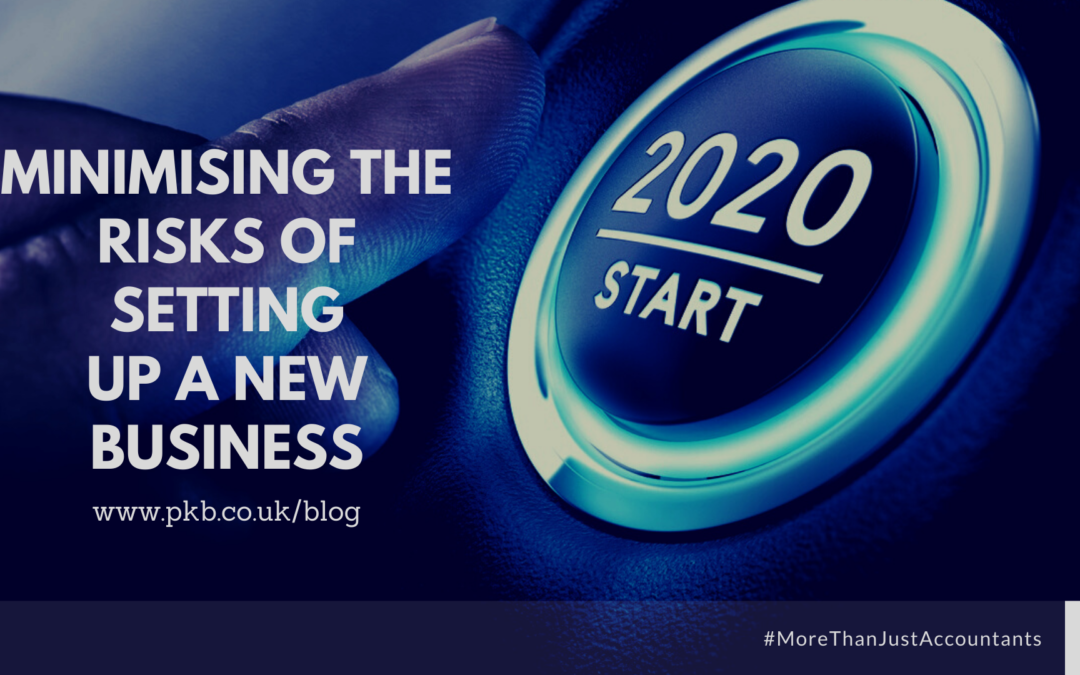64% of Britain’s workforce dreams of setting up their own business but with one in six of us too scared to do so, for many, it remains a pipe dream.
Going it alone can be scary. You’re leaving the safety of a regular income in favour of not knowing when your next pay cheque will come in. There’s no two ways about it – setting up a new business is risky.
Having worked with many small businesses over the years, we’re familiar with what it takes to make a new venture successful. Crucially, we’ve also picked up a tip or two when it comes to getting a new business up and running while cutting out some of the risks and the stress that comes with it.
Test the water
Before you do anything, it’s important to establish if there’s a demand for your product or service. Try heading to some events, fairs and festivals so you can see how your idea is received by potential customers.
Whether it’s selling a product, a service such as a massage which you can demonstrate at the event or even just handing out marketing materials, it’s an excellent way to gauge people’s reaction. If you make sales or get sign-ups, it’s a great sign that your business might do well. If you’re largely ignored however, then the most you will have lost is a small fee for being allowed to sell at the event.
Find temporary office space
There’s no need to commit to a five-year plan straight away. Can you trade temporarily, over a season or on a short-term deal?
With so much empty office space at the moment, it’s easy to hire a premises on a pop-up basis for a season or even a week. If you only need somewhere to work away from the distractions at home, you can even rent a desk by the day so you don’t have to worry about being tied into a contract.
A quick Google search will bring up plenty of options or talk to your local council as they may be able to point you in the right direction. It’s also worth asking on local Facebook groups and on LinkedIn if anyone has any recommendations.
Collaborate with other businesses
Can you usefully work with another business to minimise risk? Aside from sharing a premises, could you think about working as a separate brand alongside theirs?
Perhaps you could hire a stand in their shop or have your product promoted (and served) on their menu? Can you pay someone else to produce your product in a small run on their production line? Does an existing business have unused office space that they would be happy to sub-let?
As well as cutting costs, this can give you access to valuable business partners and customers. As long as you’re not competing with your new business contacts, there are plenty of ways you can work together without treading on each other’s toes.
Get social
Your new business definitely isn’t going to be a success if nobody knows about it.
Fortunately, you don’t need to hire an expensive PR team to spread the word. It’s free to use social media and lots of customers like the authenticity of talking to the actual business owner through these mediums.
In fact, if you’re not on social media, you’re missing a trick. On Instagram alone, 200 million users visit at least one business profile every day. What’s more, a third of the most viewed stories are from businesses, a whopping 130 million Instagram users tap on shopping posts every month and 62% of people say they’re become more interested in a brand or product after seeing it on the platform.
Don’t forget traditional media either – there are still lots of local newspapers and community publications in most areas and many will often give you a write-up for free in exchange for a quote and a bit of your time.
Go online
How many times have seen something you like, decided it’s too much of an extravagance, only to wish a few days later that you had treated yourself after all?
If customers who like your product haven’t got the means or the motivation to buy there and then, it’s really important that they can come back and find you.
The more places you’re visible online, the more people will see what you have to offer. Don’t worry if it’s an image of your workshop, not a showroom – it all adds to the authenticity.
It’s also worth looking at what large, generic platforms can offer a new or small business in terms of e-trading. As well as eBay and Amazon, there are also more niche platforms that cater to crafts, books and records.
All these online platforms offer the tools to set up selling on a very flexible scale – from the occasional hobby product to much larger operations.
Go mobile
Lots of businesses operate out of a vehicle, whether it’s selling coffee from a VW camper van or doing dog-grooming out of a Ford Transit. You could even load up your services on a bicycle.
For some clients, the fact that you can come to them could give you an edge over your competitors.
Plan ahead
Being accountants, we would say this but it’s important that you’ve thought everything through.
Do your sums – your startup costs and running costs, and work out how many hours or items you’re going to need to sell to cover your costs.
Don’t plan on running on empty. Work out your cashflow, identify any pinch points and how you might deal with them.
Your time is a cost, too, especially if you’ve already got one venture up and running.
It’s no good devoting all your time to new plans only to see your established business falter because you’ve neglected it.
Finally, remember that every new business will take a little while to pay off. It is however a good idea to know when you expect this to happen and what’s reasonable for your other commitments, family and finances to sustain.
To read news and blogs from Andy Penfold, click here >>



